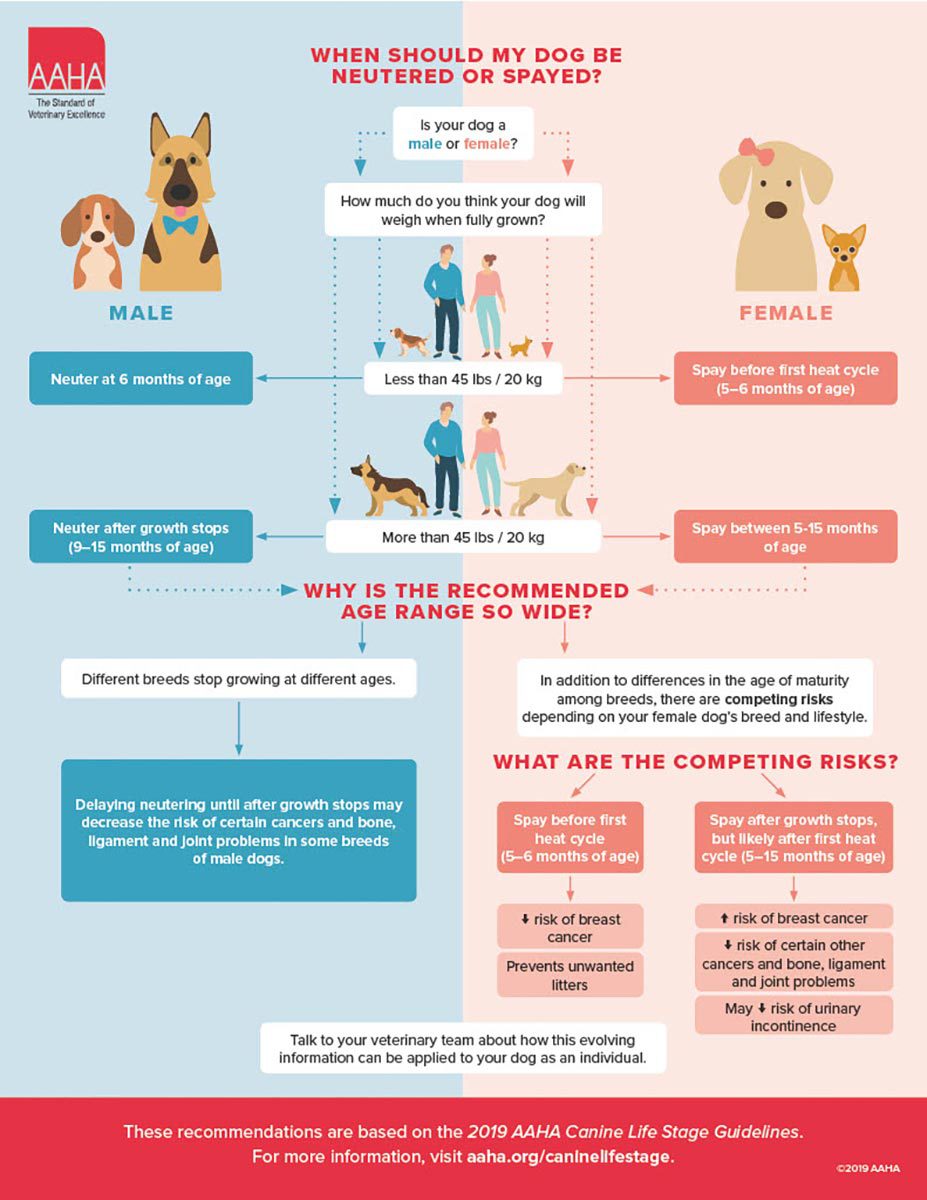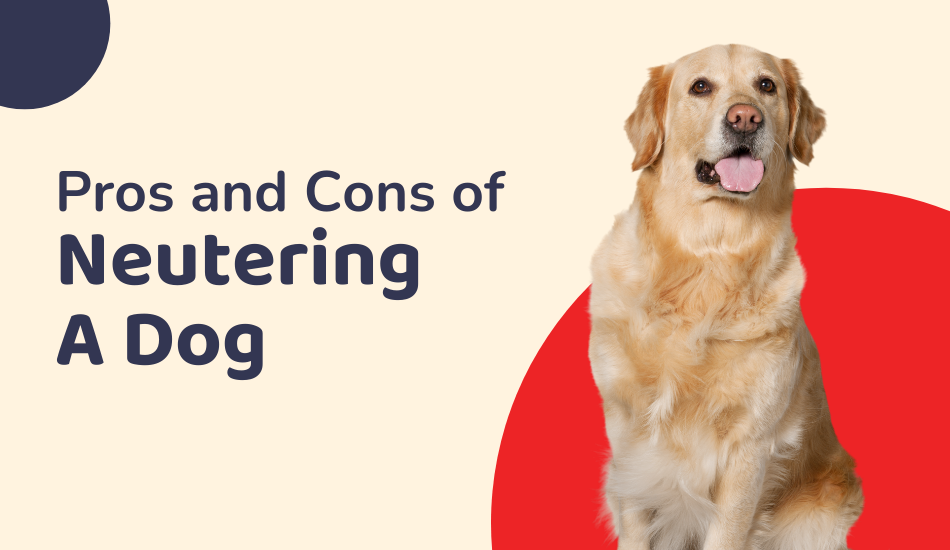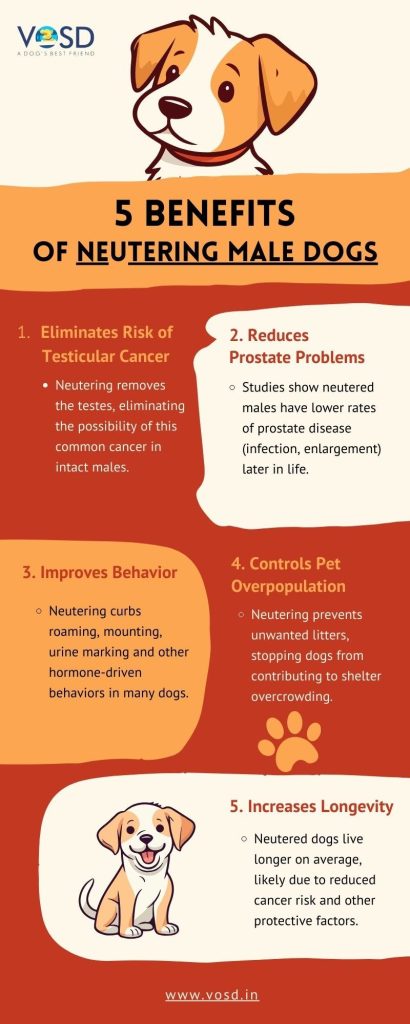Are you thinking about neutering your dog but aren’t sure if it’s the right choice? Understanding the benefits of neutering can help you make the best decision for your furry friend’s health and happiness.
This simple procedure does more than just prevent unwanted puppies—it can improve your dog’s behavior, reduce health risks, and even strengthen the bond you share. Keep reading to discover how neutering can bring lasting positive changes to your dog’s life and your peace of mind.

Credit: 4pawsclinic.org
Health Benefits Of Neutering
Neutering your dog offers a range of health benefits that can significantly improve their quality of life. This simple procedure can prevent serious medical issues and help your pet live a longer, healthier life. Understanding these benefits might help you make an informed decision about neutering your furry friend.
Reduced Risk Of Certain Cancers
Neutering greatly lowers the chances of your dog developing testicular cancer, which is common in unneutered males. It also reduces the risk of prostate cancer by preventing prostate enlargement and infections. Protecting your dog from these cancers means fewer vet visits and less stress for both of you.
Prevention Of Reproductive Diseases
Neutering eliminates the possibility of testicular diseases and reduces the risk of prostate problems. It can also prevent conditions like benign prostatic hyperplasia, which causes discomfort and urinary issues. Taking this step helps keep your dog’s reproductive system healthy and pain-free.
Lower Chance Of Infections
Neutered dogs are less likely to suffer from infections related to their reproductive organs. This includes infections of the prostate and testicles that can cause serious illness. By neutering, you help protect your dog from painful infections that require intensive treatment.
Increased Lifespan
Studies show that neutered dogs generally live longer than their unneutered counterparts. Preventing cancers and infections contributes directly to this increased lifespan. Wouldn’t you want to give your dog the best chance at a longer, healthier life?
Behavior Improvements
Neutering a dog often leads to noticeable behavior improvements. It helps reduce many common issues that pet owners face. Dogs tend to become more relaxed and easier to manage. These changes benefit both the dog and the owner, creating a happier home environment.
Decreased Aggression
Neutering lowers aggression in many dogs. It reduces hormone-driven behaviors that cause fights. This change helps dogs get along better with other pets. It also makes socializing safer and less stressful.
Reduced Marking And Roaming
Unneutered dogs often mark territory with urine. Neutering decreases this urge significantly. Dogs also tend to roam less to find mates. Staying closer to home reduces the risk of accidents and loss.
Calmer Temperament
Neutered dogs usually have a calmer attitude. They show less restlessness and anxiety. This calmness makes training easier and daily life smoother. Owners often notice a more balanced and peaceful pet.
Less Risk Of Unwanted Litters
Neutering completely stops unwanted pregnancies. It helps control the pet population responsibly. Fewer stray dogs mean fewer health and safety issues. This benefit supports community well-being and animal care.
Impact On Community And Environment
Neutering your dog does more than just benefit your pet—it has a significant impact on the wider community and environment. By controlling pet populations, neutering helps reduce the number of stray animals roaming neighborhoods. This leads to safer streets and a healthier ecosystem for everyone.
Lower Stray Dog Population
Neutering prevents unwanted litters, which directly lowers the number of stray dogs. Fewer strays mean less risk of dog attacks and road accidents involving animals. Have you noticed how fewer roaming dogs can make your neighborhood feel more secure and peaceful?
Reduced Shelter Overcrowding
Animal shelters often struggle with overcrowding due to unplanned litters. Neutering helps ease this burden by reducing the intake of stray and abandoned dogs. This means shelters can provide better care and increase the chances of adoption for dogs already in their care.
Positive Effects On Wildlife
Stray dogs can disturb local wildlife by chasing or harming native animals. By controlling stray populations, neutering helps protect birds, small mammals, and other wildlife in your area. Imagine the difference your choice to neuter can make in preserving the natural balance around you.

Credit: southeastoakvillevet.ca
Timing And Considerations For Neutering
Choosing the right time to neuter a dog is important for their health and behavior. Neutering too early or too late can affect growth and recovery. Understanding the best age and possible risks helps in making the best decision. Always consider your dog’s breed, size, and lifestyle when planning the surgery.
Best Age To Neuter
Most dogs can be neutered between six and nine months old. Small breeds often do well when neutered earlier. Large breeds may benefit from waiting until they are one year old. Early neutering can prevent unwanted behaviors and health issues. Delaying neutering may help with bone growth and muscle development.
Potential Risks And Side Effects
- Possible weight gain due to slower metabolism
- Increased risk of certain joint problems in some breeds
- Temporary discomfort or swelling after surgery
- Changes in coat texture or growth
Most side effects are mild and fade quickly. Careful monitoring after surgery ensures quick recovery.
Consulting Your Veterinarian
Talk with your veterinarian to find the best time for neutering. They can assess your dog’s health and breed risks. Your vet will explain the benefits and possible side effects. A personalized plan helps keep your dog safe and healthy.

Credit: zigly.com
Frequently Asked Questions
Why Should I Neuter My Dog?
Neutering your dog can prevent unwanted litters and reduce the risk of certain health issues. It can also help decrease aggressive behavior and territorial marking. Neutering often leads to a calmer pet and can extend your dog’s lifespan by preventing various reproductive diseases.
Does Neutering Affect My Dog’s Behavior?
Yes, neutering can positively impact your dog's behavior. It often reduces aggression, roaming tendencies, and territorial marking. Neutered dogs may become more relaxed and less prone to certain behavioral issues. However, training and socialization are still essential for a well-behaved pet.
At What Age Should A Dog Be Neutered?
Most veterinarians recommend neutering dogs between six to nine months of age. However, the ideal age can vary based on breed and size. Consult with your veterinarian to determine the best timing for your dog. Early neutering can provide health and behavioral benefits.
Will Neutering My Dog Help With Health Issues?
Neutering can help prevent several health issues, including testicular cancer and prostate problems. It reduces the risk of certain infections and diseases. By eliminating reproductive hormones, neutering also decreases the likelihood of related health complications, contributing to a longer, healthier life for your pet.
Conclusion
Neutering a dog helps keep pets healthy and happy. It lowers risks of some diseases and unwanted behaviors. It also helps control the pet population and reduce stray animals. Many pet owners find it easier to manage their dogs after neutering.
Choosing to neuter shows care and responsibility. Think of it as an important step for a better life with your dog. Simple, safe, and smart for every dog owner.

Emily Barker is the founder of ChillDogLife.com, a space dedicated to helping pup parents discover the best dog products, lifestyle tips, and cozy ideas for happier homes.
A lifelong dog lover, Emily combines her passion for pets with a knack for research to share trusted recommendations on everything from toys and furniture to health and everyday care.
Her goal is simple: to make life easier, stylish, and more joyful for dogs and the people who love them.







